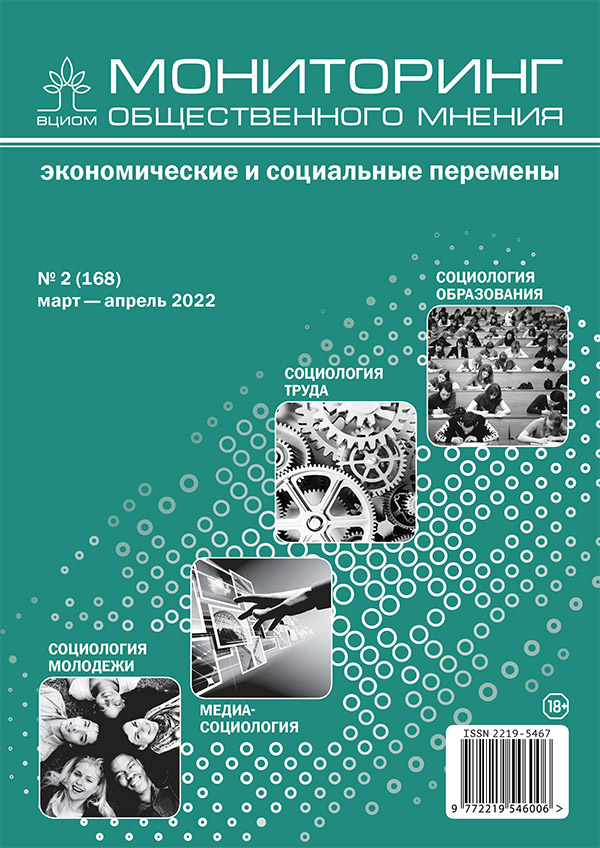Факторы формирования внутренних и внешних трудовых ценностей студентов российских вузов
DOI:
https://doi.org/10.14515/monitoring.2022.2.2071Ключевые слова:
трудовые ценности, внутренние и внешние ценности, студенты, рынок труда, работа во время учебы, молодежьАннотация
Цель настоящей статьи — выявление типов трудовых ценностей студентов восьми российских вузов, а также дифференциация вероятности их распространенности среди обучающихся с различными характеристиками. В статье использованы данные опроса, собранные в рамках исследования «Мониторинг студенческого опыта» в 2020 г. С помощью факторного анализа выделены семь типов трудовых ценностей студентов, два из которых отражают внутренние ценности (полезность, саморазвитие), а пять — внешние (материальное продвижение, надежность, общение, мобильность и гибкость). Регрессионный анализ позволил определить основные факторы формирования соответствующих типов трудовых ценностей. Работа в университете во время учебы, проживание в общежитии и обучение на гуманитарных специальностях повышают вероятность ориентации на полезность труда и способствуют восприятию работы как общественного долга. Наличие работы внутри университета и вне его, обучение на инженерных специальностях, а также высокий уровень успеваемости повышают вероятность формирования ценности саморазвития. При этом ближе к выпуску важность внутренних трудовых ценностей снижается, уступая место ценности надежности и стабильности рабочих позиций. Благодарность. Автор выражает благодарность к. эк. наук, профессору НИУ ВШЭ В.В. Радаеву и к. с. наук Д.О. Стребкову за ценные комментарии в процессе подготовки статьи. В работе используются данные, собранные в рамках исследования «Мониторинг студенческого опыта» консорциума «Доказательная цифровизация для успеха студентов» (https://edtechdata.ru/conso). Особая благодарность выражается координаторам вузов — участников консорциума в проведении данного исследования: Т.Ю. Аполлоновой, Ю.А. Цофиной, К.Н. Лях, К.В. Мертинс, О.В. Шулежко, К.Н. Захарьину, Н.Н. Загриценко, Е.А. Ледкову и Н.Ю. Тутыхину.Загрузки
Опубликован
2022-05-07
Как цитировать
Поплавская, А. А. (2022). Факторы формирования внутренних и внешних трудовых ценностей студентов российских вузов. Мониторинг общественного мнения: экономические и социальные перемены, (2). https://doi.org/10.14515/monitoring.2022.2.2071
Выпуск
Раздел
Социология труда и занятости
Лицензия
Copyright (c) 2022 Мониторинг общественного мнения: экономические и социальные перемены

Это произведение доступно по лицензии Creative Commons «Attribution-NonCommercial-ShareAlike» («Атрибуция — Некоммерческое использование — На тех же условиях») 4.0 Всемирная.






